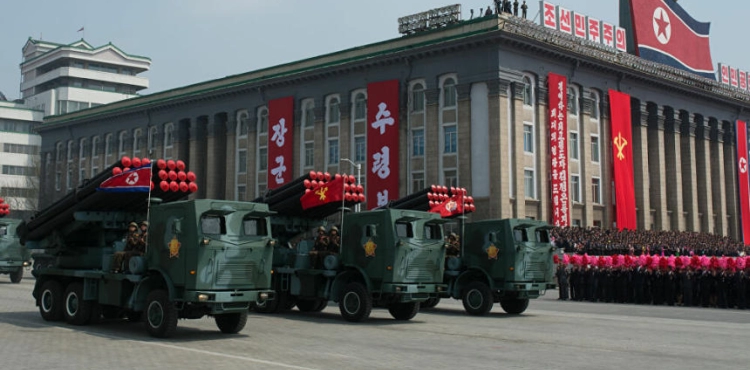Experts believe that North Korea´s destruction of the liaison office on the border with its southern neighbor is part of planned provocations aimed at forcing Seoul and Washington to make concessions.
South Korean President Moon Jae-in initially brokered a dialogue between Pyongyang and Washington, but the North now blames him for not persuading the United States to ease sanctions.
Inter-Korean relations have been very frozen for months, after the collapse of a summit in Hanoi between North Korean leader Kim Jong-un and US President Donald Trump.
The summit failed because of the dispute over what a nuclear-armed North Korea might be prepared to give up in exchange for the easing of international sanctions imposed on it.
"Internally, North Korea is deeply disappointed with Moon and seems determined to end the inter-Korean relations," said Kim Kyun-sik, professor of political science at Kyungnam University in South Korea.
"By doing this, she sends a message in brinkmanship tactics to Trump that he should resume talks or lift economic sanctions as long ago demanded," he added.
Ostensibly, this month´s developments are caused by the anti-Pyongyang postings sent by the dissidents, but this is a long-term practice.
"This is a planned provocation cycle, not a spontaneous reaction," said North Korean specialist Lev Erik Easley of the University of Iowa in the United States.
"Pyongyang is hurting the inter-Korean relations to escalate pressure in search of international concessions," he added.
He continued, "The decision to pressure Seoul is a strategy, not a tactic."
North Korea seems to have carefully studied the latest measures, with Pyongyang drawing the process by issuing multiple additional warnings from various official sources, the leadership, government departments, and the military, before every step it takes.
Likewise, while the symbolism of the destruction of the liaison office on Tuesday is indisputable, the building that was detonated was not used for months and was not inhabited, and most importantly, it is located on the northern side of the border.
Likewise, the sites of inter-Korean joint ventures that have announced that they will boost their military presence there have been inactive for years.
The Kaesong complex, where South Korean companies used to hire North Koreans and pay Pyongyang wages, was closed by the previous administration in Seoul, where South Korean tourists visited Mount Kumagang until a North Korean soldier killed in 2008 a woman who had lost her way.
The resumption of either of them may violate the international sanctions imposed on North Korea over its banned weapons programs, limiting President Moon´s ability to maneuver and despite his frequent promotion of inter-Korean cooperation.
For its part, Seoul appears to have tried to prevent the situation from escalating.
Within hours of the first condemnation of sending anti-Kim publications by Kim´s strong sister Kim Yoo Jung, Seoul announced that it would impose a ban on such activities, despite the effects of freedom of expression and assembly in the Democratic South.
After that, the South Korean Ministry of Unification filed a police complaint against two groups.
Critics said that such acquiescence would encourage Pyongyang to make more demands.
Moon supporters have sought to interpret North Korea´s comments as a sign that Pyongyang wants Seoul to interfere with Washington.
But Seoul´s impatience is wearing thin, as the Blue Presidential House Wednesday bluntly criticized Kim Yoo Jung and described some of her comments as "meaningless" and "very rude."
The United States may be next in North Korea´s goal, as Pyongyang warned Washington against straying away from inter-Korean affairs if it wanted to ensure a smooth presidential election in November.
"North Korea is sending a message to the United States that it could do a similar dramatic and provocative matter regarding their relationship, if Washington maintains its approach as before," said North Korea´s director of the Korean Institute for National Unity, Hong Min.
But such a move would be risky for Pyongyang. US President Donald Trump, facing an increasingly difficult battle in the light of the Corona virus, has long portrayed North Korea as his own diplomatic success.
He also made clear that he would consider another nuclear test or an ICBM launch as a red line.
During the tensions of 2017, his threats of "fire and anger" caused real concern in North Korea.
"North Korea should realize that this brinkmanship will not succeed this time, neither with Washington nor with Seoul," said analyst Kim from Kyungnam University.
"If she needs to change the status quo badly, she must change her calculations rather than expect the United States to do so," he added.












